Compassion and Love: Buddha’s remedy for suffering for all sentient beings: unattached, unselfish Karuna and Metta
By Payal Seth and Tanzin Dakpa
(Author bio and end of this feature.)
We need love. Science has proven it. After birth, the mother’s physical touch is the key factor in developing the brain properly. Child neurologist and neuroscientist, Tallie Baram has found that a mother’s caress triggers activity that improves cognition and builds resilience to stress in the baby’s developing brain. Hence, if the baby, after birth, is separated from the mother or any physical touch, then it can cause severe damage to the baby’s brain development. This is not religion. This is biology. We need love.

We know that, since our birth, love is an essential key to a happy and peaceful life. And yet, Buddha said that “In love there is suffering”.[1] These contradictory statements are not easy to dismiss.
Isn’t it the case that we internally smile when we see couples holding hands, lost in their bubble of love? And yet, the same day in the newspapers, we read how obsessive love can have dire consequences.
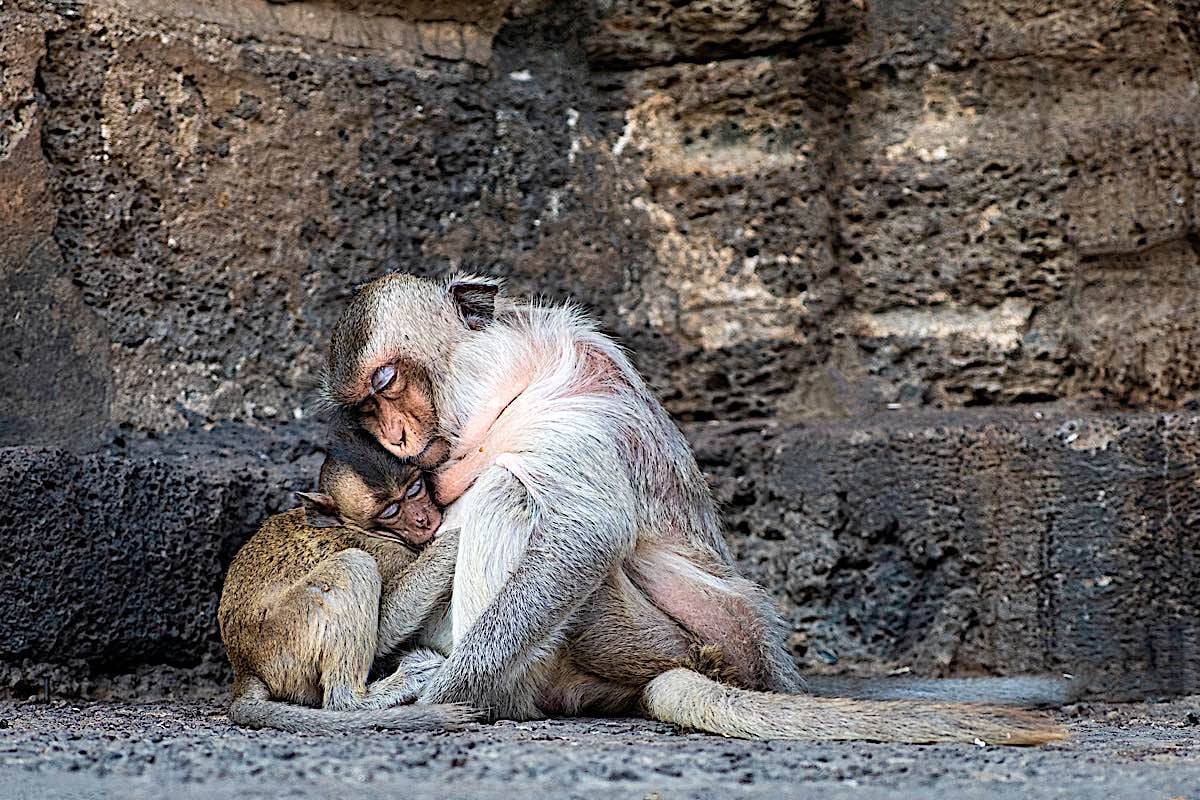
If love is happiness, then it also seems to be the cause of suffering. Science and Buddha are both right. These contradictory and yet truthful statements inspired this feature.
If love is suffering, then is it better not to love at all?
And this is where Buddha’s teachings became my guide to unraveling the true meaning of love. While the words were uttered more than 2500 years, their meaning reverberates and remains relevant, especially in this day and age.
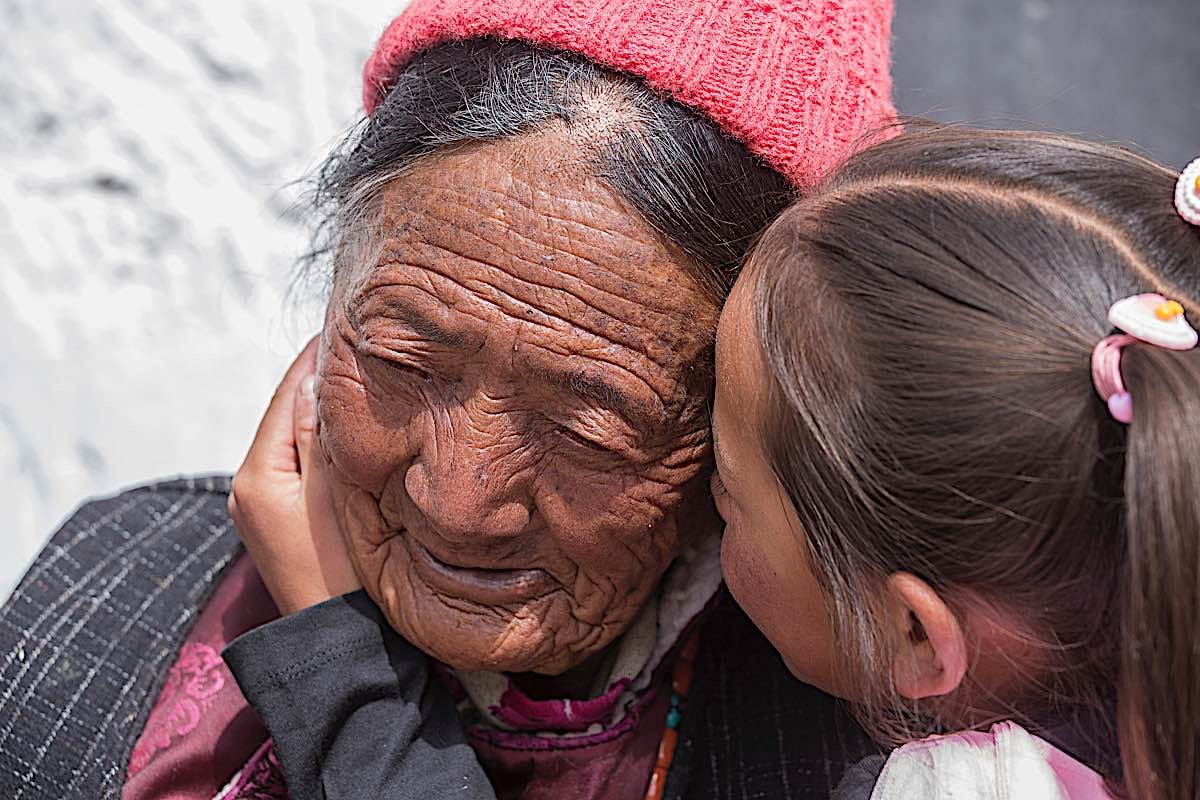
Buddha’s teachings tell us that there are many kinds of love. Examining each kind of love closely, we will realize that life indeed has a great need for love, but not the kind of love that is based on passion, attachment, discrimination, and prejudice. The kind of love that Buddha refers to is loving kindness (or Maitri) and compassion (or Karuna).
As I read these lines, I was curious to explore the distinction between the two kinds of love, and Buddha’s teachings illuminated my doubts.
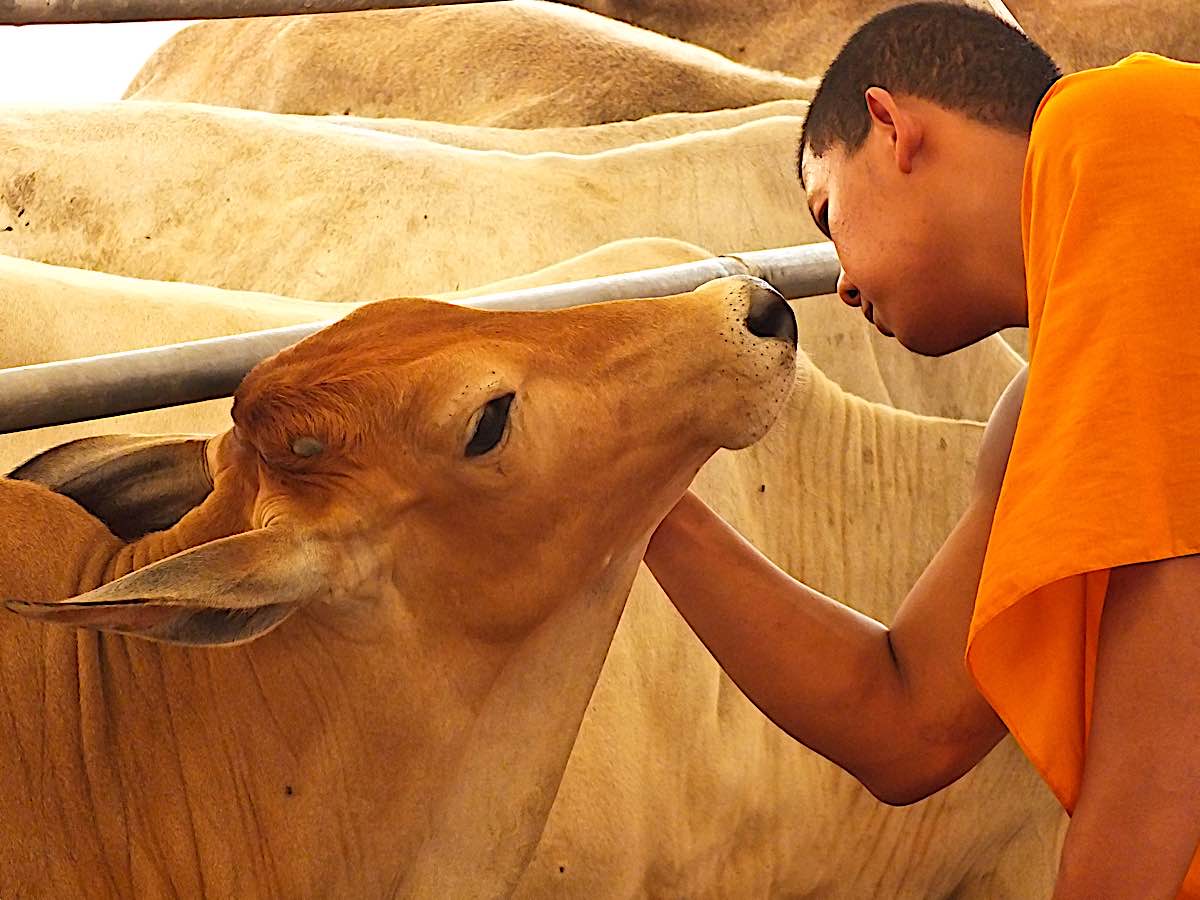
The two kinds of love
Love engendered in attachment and desire refers to the love between parents and children, husbands and wives, among family members, and members of the same caste or nation. The nature of such love depends on the concepts of “I”, “me” and “mine”. Such love has a foundation in attachment and discrimination. It leads us to worry about accidents that might befall our loved ones, and when it does, we suffer terribly. Hence, the source of our suffering is not external but internal; it is simply our attachment.
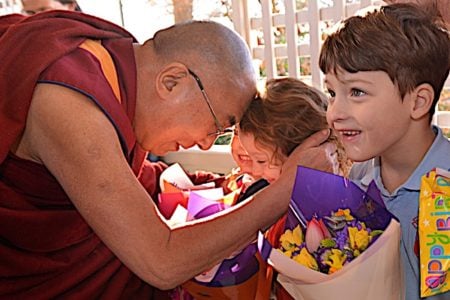
The second of love is the one that all of us truly need: loving-kindness (Maitri) and compassion (karuna). Loving-kindness has the capacity to bring happiness to other beings. And compassion can remove others’ suffering. Both Maitri and Karuna do not (1) demand anything in return, (2) are not restricted to one’s parents, friends, countrymen, etc, and (3) extend to all living beings. These conditions ensure that the conditions of “me” and “mine” are dissolved. Because there is no discrimination, there is no attachment. It is only Maitri and Karuna that have the potential to bring happiness which is essential to our lives, and ease our, as well as others, suffering.
These teachings imply our love and care for our parents, family, friends, etc, shouldn’t impede us from loving and caring for other people who fall outside the ambit of our social circle. If we extend our love to all living beings, then our limited love will become an all-embracing love. It will help us develop a heart of compassion.
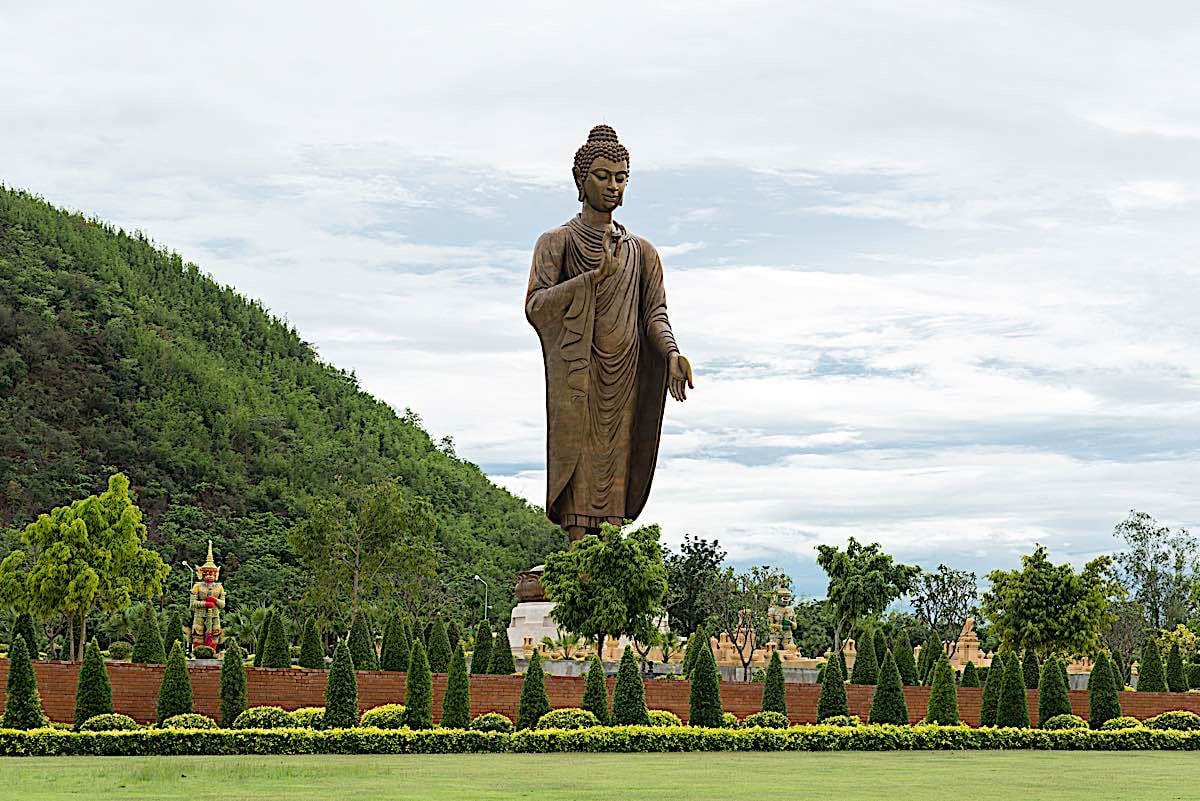
So how does one put this idea to practice? How does one love without desire and attachment? How can I avoid creating worry and suffering from the love that I hold for my family and others?
The nature of attached love
Buddha’s teachings were grounded in analyzing the nature of our love. Our love should only bring peace and harmony to the ones we love. If our love is based on a selfish desire to possess others, we will not be able to bring them (and us) suffering. Such love will only make them feel trapped and will become their prison. A prison that they will want to free themselves from. When their love is not reciprocated, then gradually, such love will turn to hatred and anger for each other. So, we need to be analytical of our intentions. Are they motivated by selfish desires?
While we understand what love should not be like, an even more pressing question is- what should an ideal love look like?

Nature of Buddha’s all-encompassing, compassionate love
Love Is Understanding. This is the essence of Buddha’s teachings. If we cannot understand others, then we cannot love them. If we want our loved ones to be happy, we have to understand their sufferings and aspirations. Once we are aware of this, we can help alleviate their suffering and fulfill their aspirations. This is true love. When everyone who comes in contact with us, through our Maitri and Karuna, is able to find peace, happiness, and joy, then we, ourselves, will be able to enjoy these precious feelings in our lives.
While I understood that the teachings were grounded in solid logic, my thoughts brought me back to square one: Won’t I still be sad if some accident or calamity were to befall my loved ones? I will still suffer. So, isn’t love still suffering?
A short video teaching on Metta and Karuna (Compassion and Love) from a Buddhist perspective, by Venerable Zasep Tulku Rinpoche (followed by a beautiful chant by the amazing Yoko Dharma):
Compassionate love gives us greater inner strength
Delving deeper into Buddha’s teachings, we will find refreshing clarity to this query as well. We have to keep in mind that suffering caused due to love that is based on attachment and desire is a thousand times greater than the suffering that results from compassionate love. Distinguishing between the two kinds of suffering helps us see that. Suffering from attached love is useless and disturbs our minds and bodies. It engenders anxiety and more suffering. Compassionate love provides the energy to respond to the needs of people who are suffering. It fuels helpful action and service. Hence, compassion can be a very helpful pain.
Buddha teaches us that love based on desire and attachment can only bring suffering. Love based on compassion brings only peace and happiness. How? Because it makes one impartial. Since compassionate love is not based on expectations (or receiving something in return for our love), longing will have no place in such pure love. Hence, no one is hurt when the response is contrary to expectations, because there are no expectations, to begin with.
So how does one begin cultivating this kind of unconditional love?
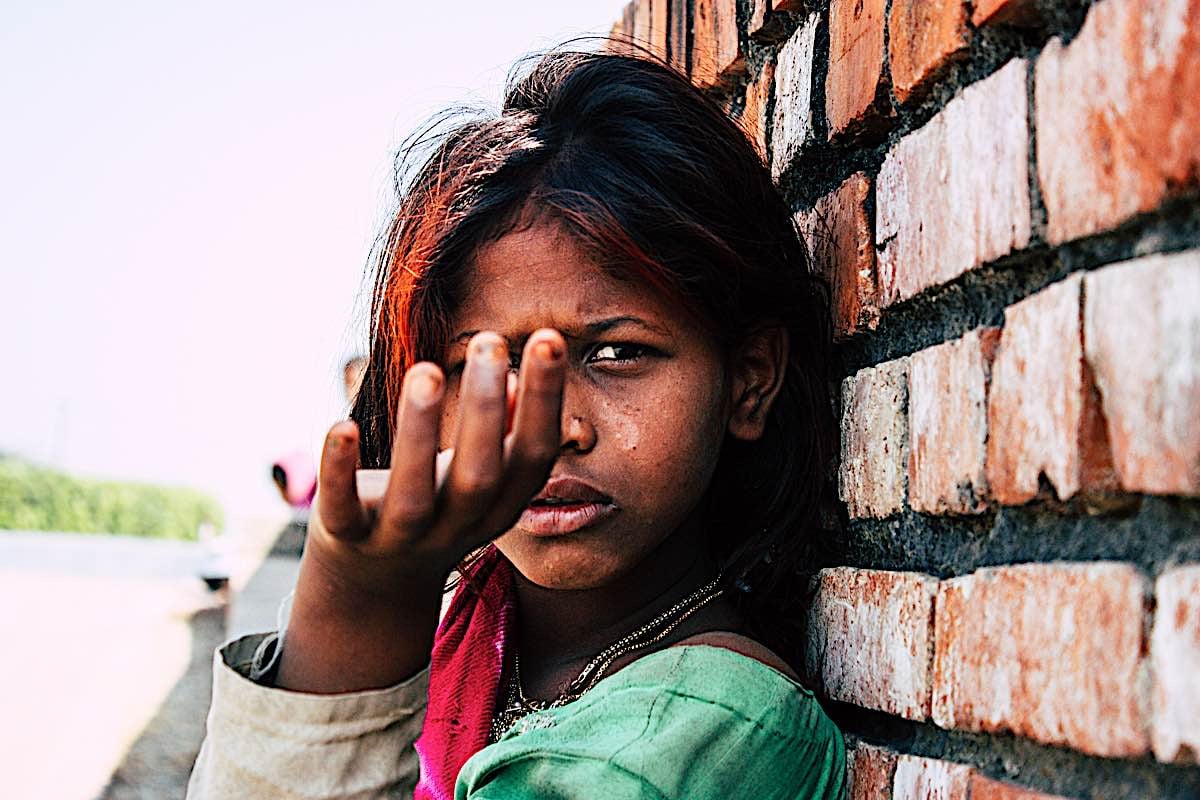
Meditation on Love
Meditation is an essential practice in Buddhism that can change our subconscious patterns and help us become the persons that we want to be. Hence, in our attempt to attain the Buddha nature of all-encompassing love, we must begin with ourselves. Be it a deprived childhood, a frustrating relationship, or career challenges. Let’s bring our focus back to what we need right now- love. Now while sitting in meditation, without dwelling too much on the causes, imagine a bright white light filling our hearts. Imagine it spreading out and filling our entire selves with light and love. A persistent mediation practice like this will lighten our anguish, giving us further clarity on the causes of suffering and how to deal with it.
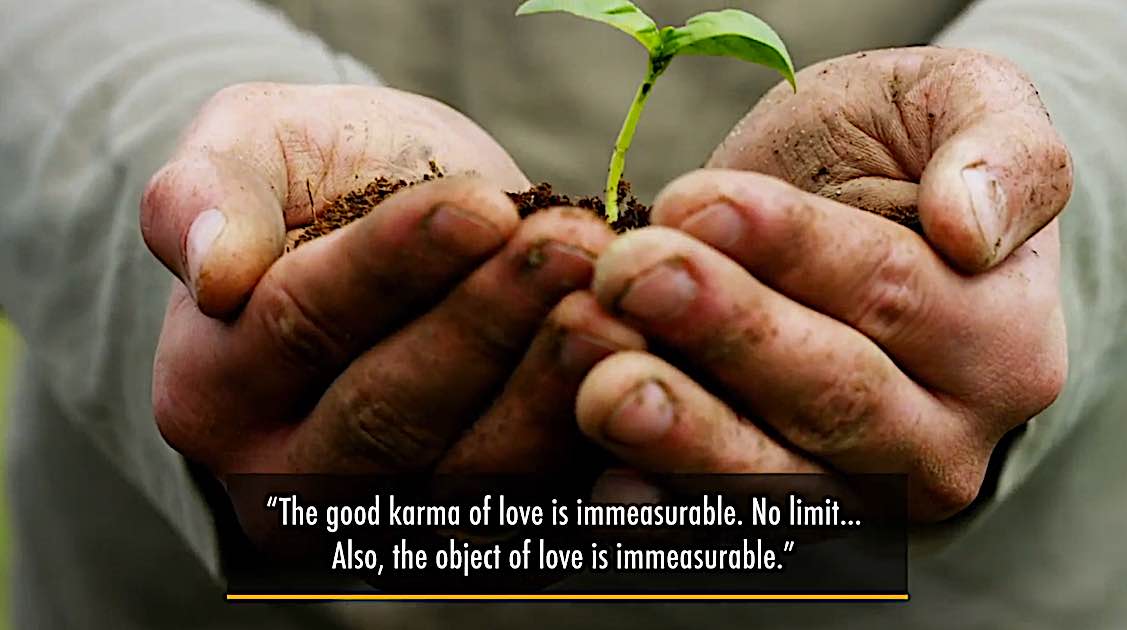
Now, in an attempt to feel the same love for others, we extend the same practice. Imagine, first, your friends and family, people you are close to. Eventually, move on to people, who have given you difficulties, or a stranger whom you know is suffering, and with a sincere heart, wish each of them happiness. The true power of even wishing our enemies genuine happiness is that we ourselves feel freed of the heavyweight in our hearts. Imagine a bright white light shooting out from our hearts like a laser beam and entering the people we are meditating on. Imagine how happy they are to receive that love and happiness from you. This is true love.
Love, as per Buddhism, is just wishing someone else to be happy, unselfishly, universally, without attachments. It is nothing more than that. It is a wonderful, heart-warming emotion. It is love for the sake of love. As simple, beautiful, and as difficult as that.
Author Profile
Payal Seth is an economist researcher at Tata-Cornell Institute, Cornell University, New York, USA. Tenzin Dakpa is a businessman in London, UK. He was formerly a Buddhist monk
References
- The Book of Joy by Dalai Lama and Archbishop Tutu
- Old Path, White Clouds by Thich Nhat Hanh
- Piyajatika Sutta (M. 87); Ud, 4; Metta Sutta (Sn. I, 8), Tchong 216 (T. 26)
- Dhammapada: Commentary in the Context of Modern Times by Prof. Wangchuk Dorjee Negi
- Buddhist Psychology: The Foundation of Buddhist Thought by Geshe Tashi Tsering
Citations
[1] Piyajatika Sutta (M. 87); Ud, 4; Metta Sutta (Sn. I, 8), Tchong 216 (T. 26)
More articles by this author
Search
Latest Features
Please support the "Spread the Dharma" mission as one of our heroic Dharma Supporting Members, or with a one-time donation.
Please Help Support the “Spread the Dharma” Mission!

Be a part of the noble mission as a supporting member or a patron, or a volunteer contributor of content.
The power of Dharma to help sentient beings, in part, lies in ensuring access to Buddha’s precious Dharma — the mission of Buddha Weekly. We can’t do it without you!
A non-profit association since 2007, Buddha Weekly published many feature articles, videos, and, podcasts. Please consider supporting the mission to preserve and “Spread the Dharma." Your support as either a patron or a supporting member helps defray the high costs of producing quality Dharma content. Thank you! Learn more here, or become one of our super karma heroes on Patreon.
Payal Seth Tenzin Dakpa
Author | Buddha Weekly
Payal Seth is an economist researcher at Tata-Cornell Institute, Cornell University, New York, USA. Tenzin Dakpa is a businessman in London, UK. He was formerly a Buddhist monk. You can read some of their previous features here>>
















